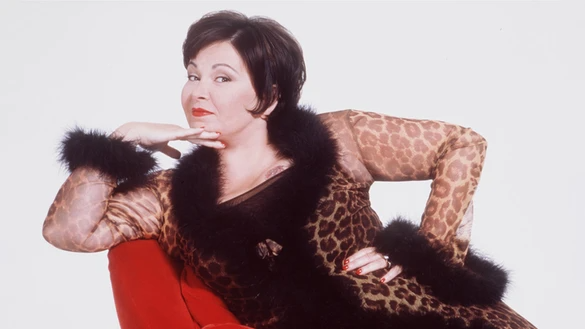
As Roseanne’s new show is cancelled for her racist tweets, Jenni Frazer traces the comedian’s life of reinvention
The nicest thing, perhaps, that one could say about the writer and comedian Roseanne Barr, is that she has a conflicted relationship with Judaism and Israel.
She sprang to fame for being white trash and proud of it. Her TV sitcom, Roseanne, which she wrote and which ran from 1988 to 1997, featured her as a working-class loudmouth — perhaps America’s answer to Alf Garnett — with endless social problems and apparently deliberately appalling right-wing opinions.
But it was always difficult to know where Roseanne the person began and Roseanne the show took over. She was born in Salt Lake City, Utah, in 1952, the eldest of four siblings in a working-class Jewish family. She spent years honing her comic talents in clubs around America before she broke through to TV; and her sitcom was followed by a talk show, The Roseanne Show, which ran from 1998 to 2000.
Viewers might be forgiven for not even realising that Roseanne was Jewish, since there was no reflection of that identity in her show — and none of her four husbands was Jewish.
But as she became more famous — and, with money in the bank, drew on the full gamut of available cosmetic surgery to improve herself — Roseanne began to talk about being Jewish in Salt Lake City, the headquarters of the Mormon religion. Some of the memories have a synthetic sentimentality in their re-telling, though it can’t have been easy to be Jewish in Utah.

But after Roseanne the sitcom finished, and Roseanne the person returned to the comedy circuit, she took to the failsafe option of “celebrity-lite” Judaism, the Kabbalah movement. Most recently, she offered to make dinner for the actress Natalie Portman and speak to her about Kabbalah and Torah to show Portman the error of her ways in not going to Israel to receive the Genesis Prize.
It’s a far cry from where Roseanne was in 2013, when she was openly promoting the Holocaust-denying musician Gilad Atzmon on her Twitter feed — and insisting that he was not a Holocaust denier.
Or how about Roseanne’s suggestion to New York’s Heeb magazine, in 2009, that she should dress up as Hitler for a feature called “That Oven Feeling”, showing her with a tray of singed biscuits captioned “burnt Jew cookies”.
Having initially become involved in politics via the Green Party — for which she ran as president in 2012 — she shifted to the Peace and Freedom Party and most recently, after her sitcom was revived this year, identified herself as a passionate supporter of President Donald Trump.
Earlier this year she was a special guest at a Jerusalem Post conference in Israel where she announced she wanted to move there. “I want to make aliyah, I do, and before all the stuff is sold — all the real estate,” she said. “I still have this fantasy of being an old Jewish lady living in the Jewish homeland. … I want to buy a farm there and maybe bring my family.”
This is the same Israel which in 2009 Roseanne was calling “a Nazi state”, while she tweeted about “Jewish mind control.”
The tirade that got her TV show cancelled was not just about her racist attack on Valerie Jarratt, a member of the Obama administration; it was also her false claim that Chelsea Clinton’s Jewish husband, Mark Mezvinsky, was a nephew of the Hungarian Jewish businessman and left-wing donor, George Soros.
Though she apologised for the error, Roseanne then went on to claim: “By the way, George Soros a nazi who turned in his fellow Jews 2 be murdered in German concentration camps & stole their wealth-were you aware of that?”
A furious George Soros rebutted this latest tweet. His spokesman said that Roseanne’s comments were “insulting” and “an affront to Mr Soros and his family,” who survived as Jews in Nazi-occupied Hungary by masquerading as Christians. Mr Soros was aged 13 at the time.
“[Mr Soros] did not collaborate with Nazis. He did not help round up people. He did not confiscate anybody’s property,” the spokesman said. “Such allegations are insulting to the victims of the Holocaust, to all Jewish people, and to anyone who honours the truth.”
It certainly seems that Roseanne has a difficult relationship with what is real and what is not. Her self-described “fantasy” of becoming Israel’s prime minister is likely to remain just that — until she next reinvents herself.
